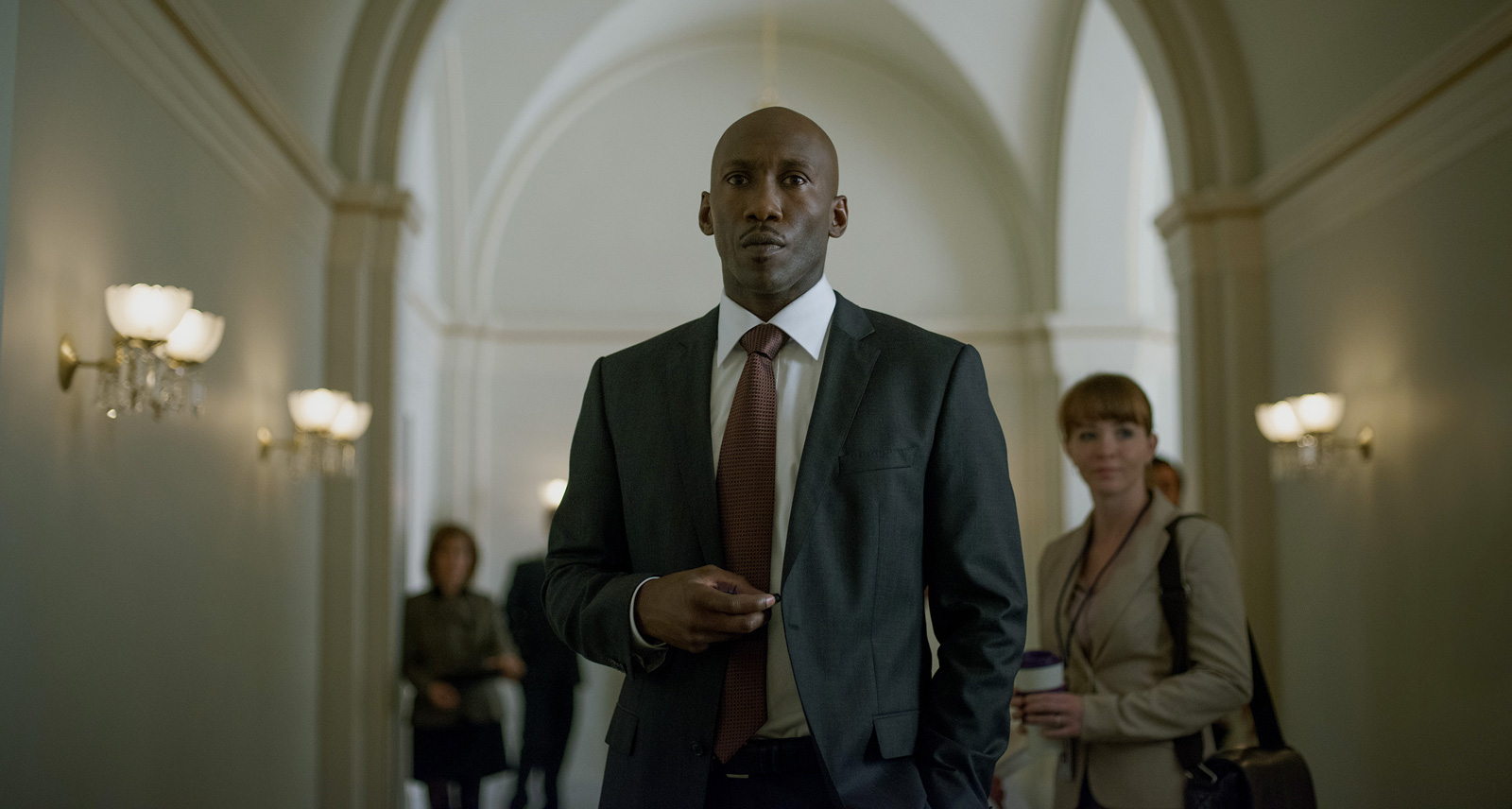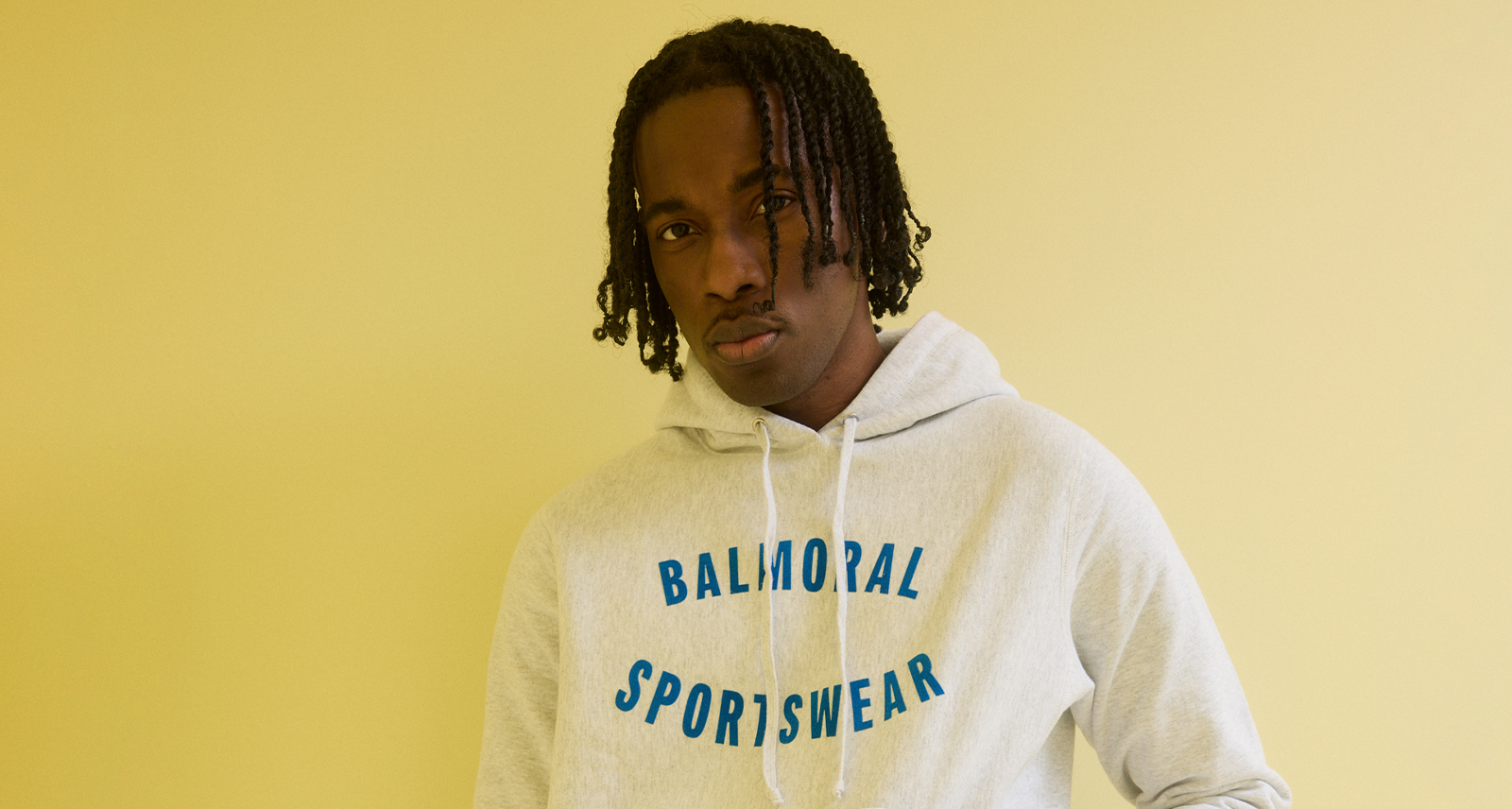A Man Worth Listening To: Mahershala Ali
If you were one of those people waiting for Netflix to drop season three of House of Cards so you could binge watch it until your eyes turned red, you weren’t alone. Our eyes still hurt.
The highly anticipated season is out, and the roller coaster ride of Frank Underwood’s reign as president has us scrambling to pick our jaws up off the floor again and again. We start off the season in a sweet, comfortable setting where Frank visits his father’s gravestone. Why? To piss on it, of course. Known to push boundaries and shock audiences, House of Cards toys with betrayal, sex, money and the insatiable thirst for power. We spoke with Mahershala Ali, who plays the President’s Chief of Staff and right hand man, Remy Danton. The actor discusses his similarities to Remy, his character’s evolution on the show and his future movie project.
In comparison to other political shows, House of Cards is unique because it revolves around main characters who do a lot of bad things, but we still like them. Remy is tough, but it’s almost like you wouldn’t expect him to be anything else. Why do you think people are so drawn to villains as main characters?
I think people enjoy the idea of watching someone get away with something to a certain point. I think there’s also a large number of people who expect him to fall at some point. People like watching it to see the entire story involved and see the story collapse. You see him (Frank Underwood) in season one starting out with these ambitions as a congressman, to become the most powerful man in the world. We see him achieve that by any means necessary. You have to believe there’s some karma waiting for him. People want to see how he gets away with it.
What drew you to this role?
I really appreciated his position of power. Getting to work in an environment where the stakes are really high, that was really attractive and exciting to me. Getting to do it opposite phenomenal actors and great writers was the best. I think a number of things drew me to the project, but just seeing someone in that position with that degree of responsibility, being so different from my experiences, it was just really something that spoke to me.
The show revolves around dirty politics, but has the underlying message that power is everything, especially with Kevin Spacey’s character. Do you follow politics?
I’m not passionate about politics in all honesty. The things that bubble to the surface that you end up seeing online or on the news I definitely catch and am aware of. I’m not around the house watching the news for a couple hours a day; it’s just not where my passions lie. I have no problem acting in that world and pretending (laughs) to be interested in that world, but off-set that’s not what I’m drawn to.
Remy Danton is the kind of guy you don’t want to cross. He takes his job seriously and has a bit of a tough exterior. How much of Remy do you identify with?
Remy definitely has some qualities that I aspire to have and connect with. He’s very driven and passionate about his work and ambitions the same way I am. There are some things that Remy can justify in his work that I wouldn’t be able to justify myself. That’s always great because you want to find that connection with the character that will resonate personally but still be able to find a number of things that are different from your own personality.
The concept of a Netflix series is still fairly new. Do you think this everything-at-once angle engages viewers more?
I think it’s just different, more similar to film. A lot of people end up watching the show over a weekend or so, so you have to wait another 51 weeks to watch the other seasons. It’s not like seeing Hunger Games and having to wait a year to watch Catching Fire. It also shifts about how you can talk about it. If you have a show that’s released week-to-week, people can go on blogs and talk about it every week. Now when thirteen episodes come out at once, they discuss it all at once. So I think the discussion has shifted.
We see Remy engage in a romantic relationship with Jackie in season 3. It lets us see a softer side of him. How do you think his character has evolved throughout the season?
I would say that they pulled the curtain a little bit on who he is. I think Remy was always a three dimensional human being. It’s just when you see what the audience gets to see, they only see him as a lobbyist. My job is to show him as human and show his ideas and thoughts and emotions that the audience doesn’t get to see. At the end of season 3 when he decides to leave, I think he’s no longer consumed entirely by his work. Now he’s looking to balance out his life—that’s where the evolution has come, where he’s had enough of politics because it has consumed him. It has affected his ability to have a relationship and be fulfilled as a person.
You’re starring in an upcoming movie called The Free State of Jones about the story of Newton Knight. What character do you play, and what can you tell us about the film?
I play a character by the name of Moses and he is what they call a maroon. They are a generation of African Americans who ran away and lived in the swamps of Mississippi and Florida because that’s where they were safe. Matthew McConaughey plays an ex-confederate army officer who deserts and ends up hiding in the swamps. We become allies and he ends up leading a rebellion against the confederate army that is successful. So it takes place around the end of the civil war and into the reconstruction era.
House of Cards Season 3 is now on Netflix.










